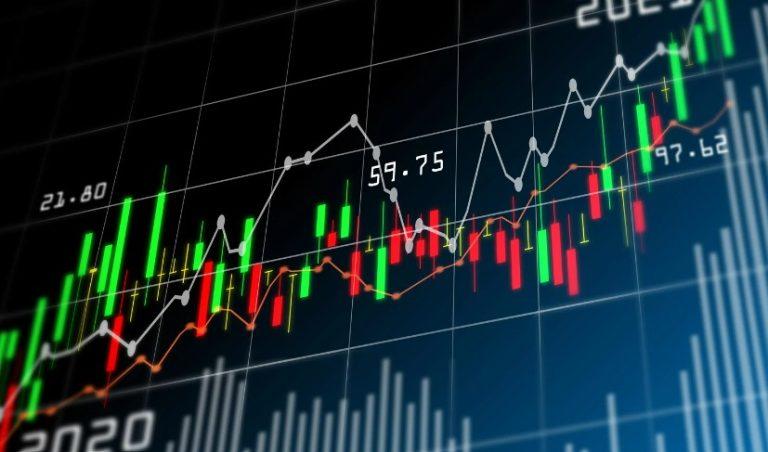Post Contents
The entire value of a company’s stock shares is referred to as its market capitalisation. Knowing a firm’s market capitalisation allows you to compare the relative size of one company to another. Stocks signify ownership in different sizes of businesses. Understanding the link between firm size, future return, and risk is critical when developing a long-term investing plan. With this information, you’ll be better equipped to design a well-balanced stock portfolio that includes a variety of market capitalisations. Let us learn more about Market Cap.
What exactly is market capitalisation?
Market capitalisation (or market cap) is the total worth of coins created to invest in cryptocurrency such as Bitcoin. It is calculated by multiplying the current market price of a single coin by the total number of coins in circulation.
Why is market capitalisation important?
Knowing a company’s market capitalisation may be beneficial when developing an investing plan and making investment choices. Your investing objectives, risk tolerance, and time horizon should be tailored to your personal and financial circumstances. If you have a longer investment horizon and are ready to take on greater risk in exchange for more significant returns, you may invest money in more small or mid-cap firms.

Market capitalisation might also assist you in diversifying your investments. A diverse portfolio of firms with varying market capitalisations might help disperse risk. However, market capitalisation is just one factor to consider when building a diverse portfolio. Instead of only investing in stocks, you may invest in firms from various industries or countries or in other financial instruments such as ETFs and bonds.
It is crucial to remember that, although market capitalisation might indicate a company’s risk level and size, it is not the sole signal.
Market capitalisations
Stock investors often classify listed firms based on their market capitalisation. Here are the three most essential sizes to look for:
Small-capitalisation stocks
These are businesses valued between $300 million and $2 billion. They may be very young or in specialist or nascent industries, making them riskier since they lack the resilience to weather economic downturns. Small-cap stocks are more volatile, and there may be less trading volume and liquidity compared to more prominent corporations. Despite the inherent risk, these companies may occasionally provide superior prospects for development.
Small-cap stocks

These firms typically have a market capitalisation of $2 billion to $10 billion. They’ve established their reputation and work in sectors that are predicted to rise. Analysts and investors anticipate mid-cap growth. Because they have a shorter track record, the risk is more significant in comparison to big caps but lower in comparison to small caps. Many growing companies fall into the mid-cap category, and their growth potential might be appealing to investors.
Large-capitalisation stocks
Companies with a market capitalisation of $10 billion or more fall under this category. Large caps, sometimes known as blue-chip stocks, are well-established corporations with a proven track record of performance. The return on investment may not be as swift or spectacular as that of small or mid-cap growth firms, but big caps often pay dividends when available, and share price swings have traditionally been less volatile.
Coin market capitalisations
We’ve discussed stock market caps so far in this post, but the word is also used in other asset classes. Coin market caps (also known as crypto market caps) are one example since they represent the overall value of a particular cryptocurrency presently in circulation.

Coin market caps are determined similarly to stock market caps, except that instead of using outstanding shares and share price, total coins in circulation and the crypto’s current price are used.
What is the purpose of market capitalisation?
There are several reasons to determine a company’s market capitalisation. Let’s look at three: assessing success, trading, and indexes.
Success Evaluation
Market capitalisation provides a simple method to examine how a company is doing compared to its peers. When a firm has a large market capitalisation, it typically signifies that investors value it more than others in its industry.
After all, the list of the top stocks by market capitalisation includes some of the world’s most successful corporations.
However, capitalisation should not be seen in isolation since it merely reflects the market’s perception of a firm while neglecting essential factors such as sales, earnings, and growth. Key financial ratios like P/E (price to earnings) and P/B (price to book value) provide a far more comprehensive picture of a stock.
Trading based on market capitalisation

Fundamental analysis entails determining a company’s fair value and appropriately establishing a stake. Some traders use market cap instead of share price in this case since it estimates the overall worth of the stock rather than simply the price of a single share.
Indices based on market capitalisation
Many stock indexes, like the S&P 500 (US SP 500), FTSE 100 (UK 100), and DAX 40 (Germany 40), utilise market capitalisation to calculate prices. Why? Because, as mentioned before, share prices may be biased and do not always represent the complete picture.
These indexes are capitalisation-weighted rather than price-weighted. They place a higher value on stocks with large market capitalisations while disregarding share prices.
Market capitalisation influences
Because market capitalisation is determined by current share prices and the number of shares outstanding, any factor affecting either may influence a company’s market capitalisation. Stock prices change continuously due to supply chain and demand in the stock market. As a result, market capitalisations do not remain constant.
In terms of the number of existing shares, a company’s market valuation will fluctuate if it issues new shares or buys back part of them. The same applies when exercising warrants on a stock because additional shares are issued.
Conclusion
The entire value of a publicly-traded company’s shares is referred to as its market capitalisation. Market cap, short for “market capitalisation,” is one method for an investor to determine how much a firm is worth. To calculate a company’s market value, multiply the share price by the number of outstanding shares.


